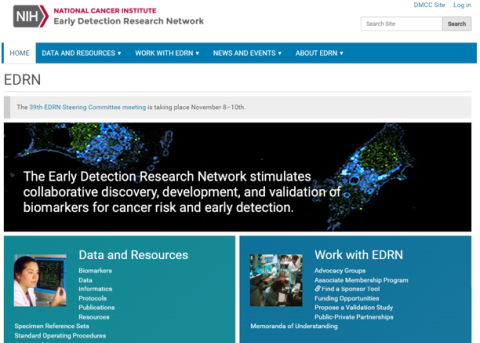The Early Detection Research Network (EDRN) is a collaborative program that maintains comprehensive infrastructure and resources critical to the discovery, development and validation of biomarkers for cancer risk and early detection.
The DCP Cancer Biomarkers Research Group administers this program.
On This Page
- All Heading 2s will automatically be pulled in to this list.
- Do not edit the content on this template.
About EDRN
The program comprises a public/private sector consortium to accelerate the development of biomarkers that can improve medical practice, ensure data reproducibility and integrity, and adapt to the changing landscape of biomarker science.

